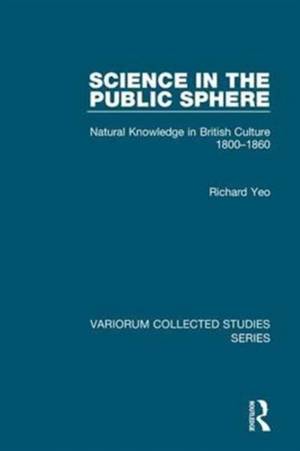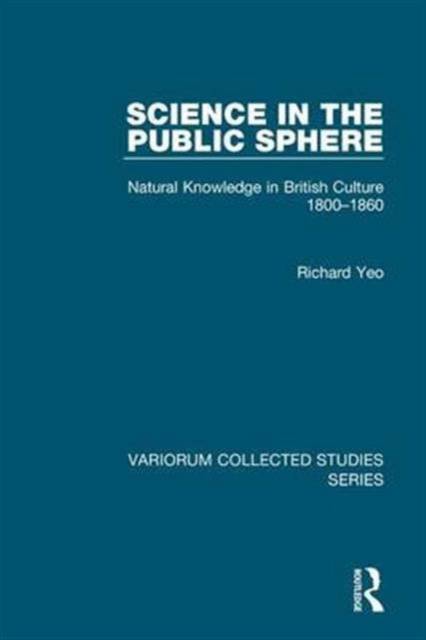
Door een staking bij bpost kan je online bestelling op dit moment iets langer onderweg zijn dan voorzien. Dringend iets nodig? Onze winkels ontvangen jou met open armen!
- Afhalen na 1 uur in een winkel met voorraad
- Gratis thuislevering in België vanaf € 30
- Ruim aanbod met 7 miljoen producten
Door een staking bij bpost kan je online bestelling op dit moment iets langer onderweg zijn dan voorzien. Dringend iets nodig? Onze winkels ontvangen jou met open armen!
- Afhalen na 1 uur in een winkel met voorraad
- Gratis thuislevering in België vanaf € 30
- Ruim aanbod met 7 miljoen producten
Zoeken
€ 51,95
+ 103 punten
Omschrijving
The common focus of the essays in this book is the debate on the nature of science - often referred to by contemporaries as 'natural knowledge' - in Britain during the first half of the 19th century. This was the period before major state support for science allowed its professionalization; indeed, it was a time in which the word 'scientist' (although coined in 1833 by William Whewell) was not yet widely used. In this context, the questions about the nature of science were part of a public debate that included the following topics: scientific method and intellectual authority, the moral demeanour of the man of science, the hierarchy of specialised scientific disciplines, and the relation with natural theology. These topics were discussed both within scientific circles - in correspondence and meeting of societies - as well as in the wider public sphere constituted by quarterly journals and encyclopaedias. A study of these debates allow us to see how British science of this period began to cast loose some of its earlier theological supports, but still relied on a moral framework to affirm its distinctive method, ethos and cultural value.
Specificaties
Betrokkenen
- Auteur(s):
- Uitgeverij:
Inhoud
- Aantal bladzijden:
- 324
- Taal:
- Engels
- Reeks:
Eigenschappen
- Productcode (EAN):
- 9780860788652
- Verschijningsdatum:
- 12/12/2001
- Uitvoering:
- Hardcover
- Formaat:
- Genaaid
- Afmetingen:
- 149 mm x 224 mm
- Gewicht:
- 594 g

Alleen bij Standaard Boekhandel
+ 103 punten op je klantenkaart van Standaard Boekhandel
Beoordelingen
We publiceren alleen reviews die voldoen aan de voorwaarden voor reviews. Bekijk onze voorwaarden voor reviews.











